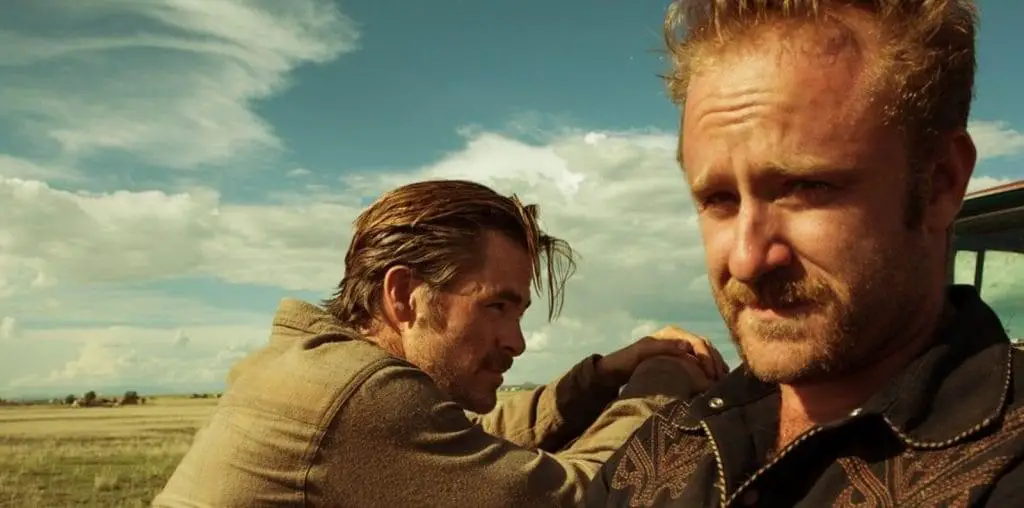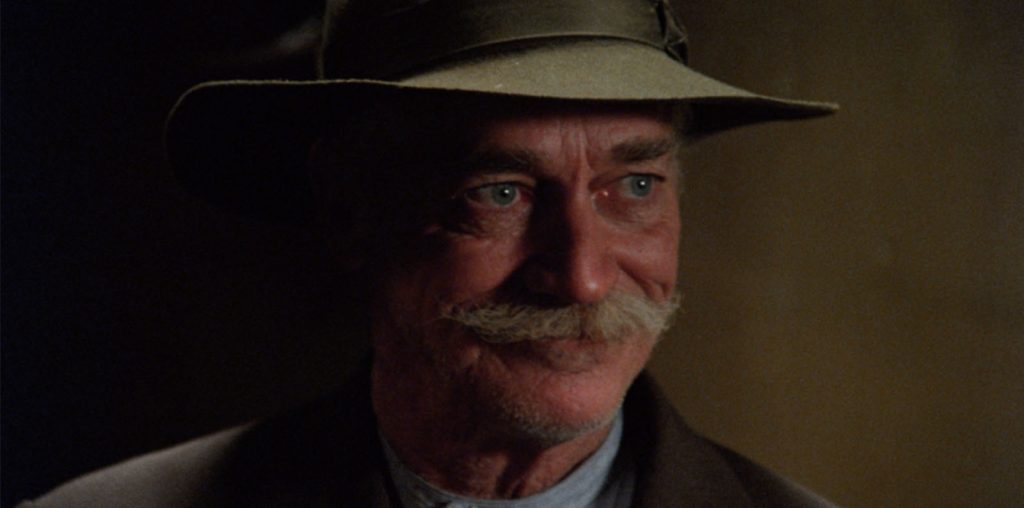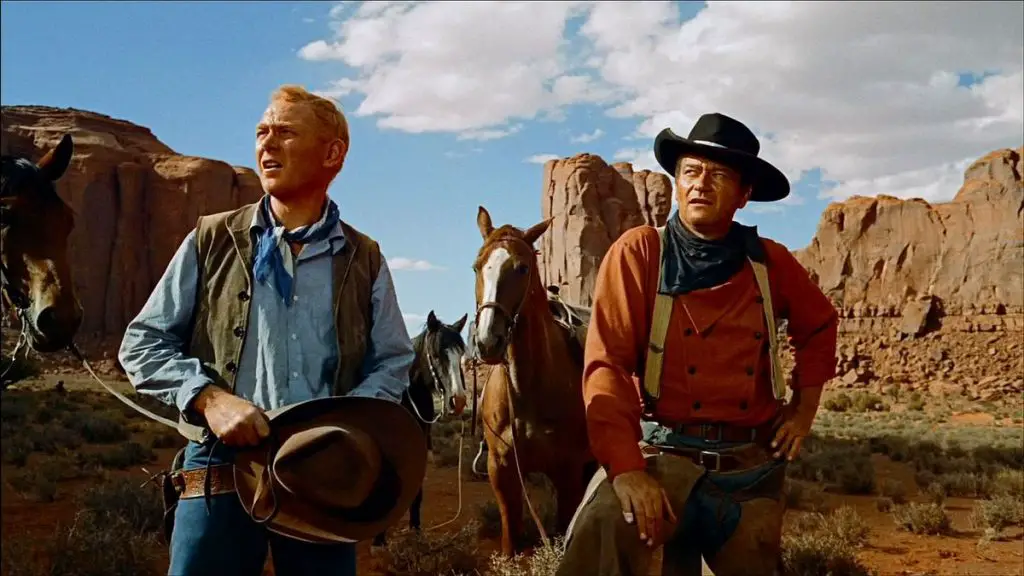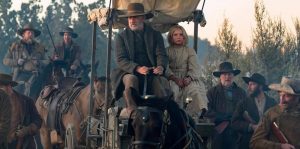
There are two competing narratives in America, and this film couldn’t be more timely in outlining visions that stand in stark contrast to each other. For the sake of argument, let’s call them “red” and “blue.” Red is represented by the Old West cowboy, making the plains safe for White people by killing everyone who already lives there. Blue is a more progressive, culturally diverse view of the world, often seen as weak by the Red-minded folks. Sound familiar?
Cinematically, we’ve been here before. There is a parallel in the 1965 film The Searchers, in which female children were spared in a Comanche raid during the Texas Indian Wars. The response of the White men who track and find the girls years later is very different. John Wayne rejects Natalie Wood’s character when he learns that she’s grown up and becomes one of the Comanche men’s wife. He feels she is no longer fit for White society.
Ripping the veil off the romantic notions of the Old West has been happening for a while. The Searchers did it, albeit unintentionally. Clint Eastwood gave us a gritty, unmerciful look at the real American west in The Unforgiven in 1992. In literature, Cormac McCarthy painted the west in red in Blood Meridian, and his novel No Country for Old Men, which was made into a great film with Javier Bardem and Josh Brolin. While set in modern times, it is still an exploration of that Old West cultural mindset.
We stand at the crossroads now between these two concepts of what it means to be American. Much of the Red-state ideal of rugged individualism derives from the fantasy of the Old West cowboy. It’s important to deconstruct this mythology where only White men are fit to rule. It’s a fading narrative that is a signature of Donald Trump’s presidency, who declared that only he could save you, while in fact, fleecing the very people who supported him. It is and always has been a con.
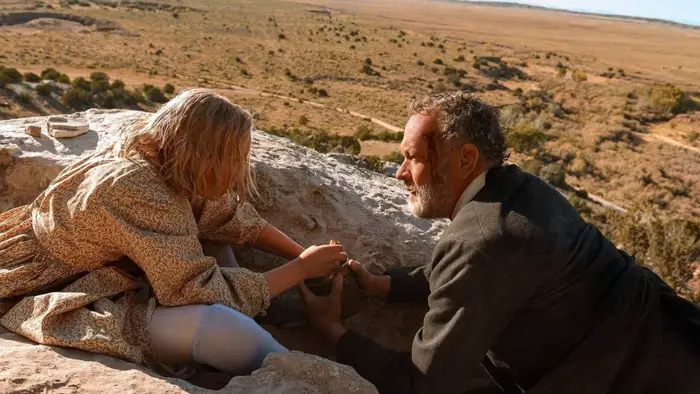
“Captain Kidd is a vision of a man who knows his frailties and limitations, and manages to do the right thing anyway.”
The Old West cowboy is a compelling, feral, almost preternatural animal. He’s a laconic, individual White man with a gun, sitting on a horse, delivering justice and peace through superior firepower and a steel will. The cowboy needs no one but his horse, and while he may bed the ladies upstairs over the saloon when the shooting is done, he’ll be riding out of town to save the next people in trouble. He’s a Spartan who doesn’t quite fit into polite society. He is The American Dream, and Manifest Destiny made flesh.
The problem is that the cowboy/gunslinger is a myth. He’s a superhero fantasy that results in men coming to power who have neither the wit nor the wisdom to lead. Writer Ijeoma Uluo discusses the damage done by this persistent archetype in her book MEDIOCRE: The dangerous legacy of White Male America.
“White male mediocrity is a baseline, the dominant narrative . . . everything in our society is centered around preserving white male power regardless of white male skill or talent …We aren’t just talking about a few bad dudes,” Oluo says. “We are talking about deliberately constructed identities and systems of power.“
America’s escalating struggles with the dichotomy between the ideals of the Old West and a new, more inclusive culture may be signaling the beginning of the end of this kind of thinking. Of course, taking a bigger step back, one could argue that a film spotlighting a White man saving a White girl is just another White savior narrative, and one would be right, but the message is still legitimate progress. Coming at awards season, the film has a definite “going for Oscars” vibe about it, but that doesn’t take anything away from the quality of the film. It’s not just Oscar bait.
In News of the World, Captain Kidd is a man who knows his frailties and limitations and manages to do the right thing anyway. He is not a saint, but merely a good man, haunted by what he saw and did in the war, seeking redemption. His time with Johanna shows him what that might look like and shows us all a man finding a better way.
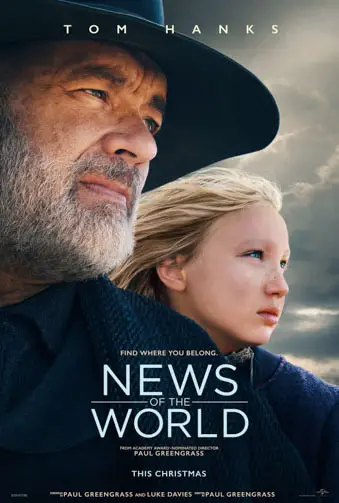
"…the cowboy/gunslinger is a myth."
